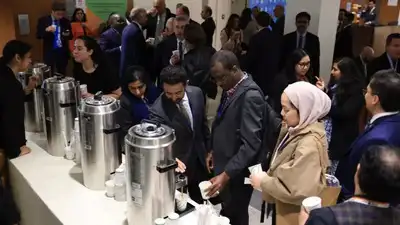
India’s permanent mission to the United Nations hosted a special event on Wednesday to mark International Tea Day, focusing on how tea contributes to economic empowerment, employment, and sustainable development goals. Themed “Tea for livelihoods, tea for SDGs,” the programme drew diplomats, UN officials, and representatives from other major tea-producing countries. India’s UN ambassador Parvathaneni Harish said the country’s tea industry is more than a source of trade and taste—it is a foundation for rural jobs and women’s empowerment. “From Assam to Darjeeling and Nilgiris, tea has become a major part of our economic story,” Harish said, adding that the industry supports over 10 million livelihoods and directly employs 1.5 million people, most of them women. However, he also pointed out growing challenges such as climate change, input costs, and market uncertainty that affect especially small-scale farmers, who produce over 60 percent of the world’s tea. Harish called for innovation and policy reform to protect these communities and improve working conditions. He introduced India’s 2022 launch of the Tocklai sustainability certification and spoke of emerging technologies being used to modernise tea production. These include AI-based weather forecasts, drone crop monitoring, and blockchain tracking systems. Speakers from China, Kenya, Sri Lanka, Vietnam, and the UN’s food and agriculture organisation stressed the need for climate-smart practices, better financing, and inclusive trade models. They highlighted how smallholder farmers remain vulnerable despite being central to the global tea supply. The event ended with a curated tea tasting, where guests sampled different Indian teas—Darjeeling, Masala chai, Assam, and Nilgiri.The United Nations general assembly declared May 21 as international tea day in 2019, based on a proposal first put forward by India at the FAO’s intergovernmental group on Tea back in October 2015.














